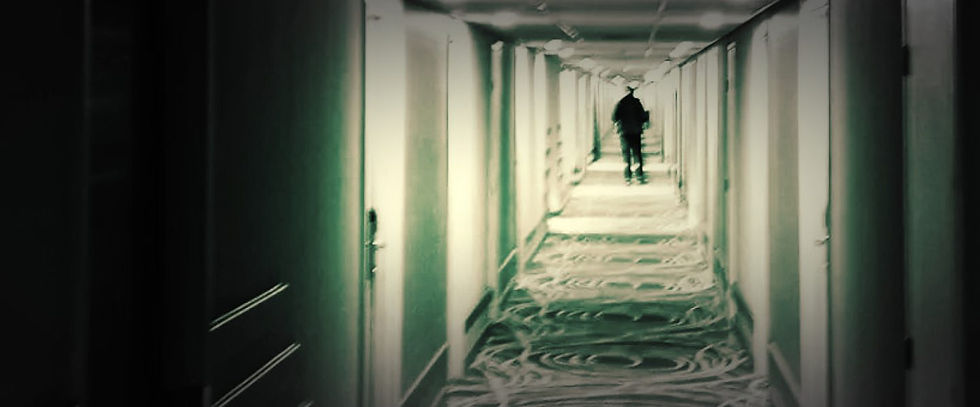What Horror Means To Me by Giles Edwards
- Samantha LK
- Oct 29, 2024
- 3 min read

What Horror Means To Me
by Giles Edwards
I've missed many boats in my day. Among them are the foundational films I've found mostly associated with Horror cinema. Halloween, Friday the 13th, Nightmare on Elm Street, Child's Play, "Hammer Horror", and most of the Hellraiser and Puppet Master franchises: they all passed me by. The scariest video I recall was the two-part made-for-TV item, It. That scared my pants off, but not until after the fact. I lived in a basement room at the time—my own choice, as all my Legos were there—and devised a light-switch sequence which allowed illumination every moment up until being under the covers. This began the evening following the screening.
What was it about It? A lengthy conversation with a friend helped to illuminate what it was about the Horror genre, at least in cinema and television, which gripped me. Violence has never bothered me, and general grisliness is something I can find entertaining. But tastes of the unknown, and the unknowable, remain pleasantly unsettling. My path toward reviewing strange cinema is fed in no small part by a hunger for unexplainable situations, hints at a horrible reality that might be fearsomely troubling, or just feature a quotidian lack of concern: the "they" in many films and stories, or the psychologically foreign social forces, having no concern about humanity's well-being, much less my own.
Someone crushed under the weight of mysteriously adverse circumstances, such as in Eggers' The Lighthouse, for instance, leaves me with slack jaw and vague, but intense, sensations of ill wonderment. Wheatley's A Field in England similarly troubles, with its almost nonchalant disregard for the characters and the epic scope of events drilled down on to the smallest of victims, as with a magnifying glass converting the sun's rays into the death of any creature unfortunate enough to cross the path of its dense beam of indifferent suffering. And in that vein, perhaps, of existential Horror, Ridley's hyper-drama(?) The Reflecting Skin, exemplifies terror by weight: when the emotional trials of a young boy accumulate sufficiently, his mind breaks under the piled anguish and he runs screaming into a field, if only to try to communicate to fate's indifferent ears that he can take no more.
My grounding in Horror as a literary genre is on firmer, but still scanty, footing. I'm about as well versed in Poe and Lovecraft as a modest fan could hope to be, and will even mention the mundane horror of life as explored by Kafka. These writers put much into crushing their protagonists with troubling and often incomprehensible sleights, challenges, trials, misfortunes, and injustices. As their characters are irreparably damaged, we witness the stressors alongside. Gregor's affliction in "Metamorphosis" is as inexplicable as it is bizarre, and though his fate is unkind, its elicitation of casual cruelty from his family is what breaks him. (This is a very Kafka thing to do; what little I know of his personal life suggests the author could have done well with greater ambient sympathy.) Roderick's condition in "The Fall of the House of Usher" turns him from a sensitive soul into a woefully overburdened one, whose immediate life and environment doesn't change so much as become impossible for him to reckon with. And anyone who's read any Lovecraft knows the inevitable effects of coping with the unspeakable.
Horror, then, is perhaps a palatable delivery system for what the mind is least able to handle: fear, particularly as it derives from losing one's bearings and touch-stones, and unwarranted torment. Personal tragedy, stemming from a known and palpable cause, is a devil to cope with—but it is something one can (typically) cope with. There comes a point, though, either through accumulation of disturbance or the inexplicability of cause (or more often, a combination of the two), when the mind reels, in horror, at what it is facing. Stories about the unknown, either told aloud, or written down, or put upon the screen, are a chance for the teller to capture this unpleasantness. If the storyteller is capable, their efforts allow the audience to endure sensations on the furthest edge of emotional possibility—all while safely in their favourite chair.
You listen to Giles' audio recording of this piece on Soundcloud here.
You can find Giles on twitter @gilesforyou, on Soundcloud as "OrsonBennett" and as a regular contributor on 366weirdmovies.com. Links here:



Comments